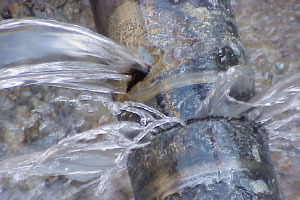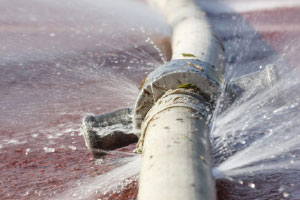Winter can be one of the busiest times of the year for a plumber. The last thing you want during the winter months is to have to call one out. Whether it’s for a cracked pipe or a broken boiler, it can be inconvenient and expensive.
There are a few things you can do to protect your plumbing this winter. Allow North Staffs Utility Services to talk you through how you can winterproof your home, and avoid a plumbing emergency.
Insulate pipework
It’s important to insulate your pipework in order to prevent pipes from freezing or cracking, as this can lead to further issues occurring.
As the temperatures drop the water in your pipes can freeze. When water freezes it expands, which can cause pipework to crack. This can result in anything from a small leak to a flood, which can cause serious damage to your property and can be expensive to resolve.
This can be prevented, however, easily and cheaply. Foam pipe covers can be purchased to protect your pipes against the wintery elements. Simply cut them to the required length, then wrap securely around  your pipework using tape.
your pipework using tape.
Clear your drains & gutters
During winter, drains and gutters can become blocked with leaves and debris. When this happens, ice and dirt can collect, which can block or even break the drainage.
The best way to keep your drains clear is to be proactive. Making sure these are clear before the leaves fall and block the drain can help. Once clear, we’d also recommend installing drain guards in order to prevent future blockages.
Pack away hosepipes
It’s best to remove any hosepipes from external taps during the winter, and packing them away, whether it’s inside or in a shed.
In terms of any external taps, we’d recommend shutting off the valve if the tap isn’t going to be in use. Also draining any remaining water from the tap will prevent excess water from freezing and potentially blocking the pipework.
Take care with the kitchen sink
When we empty lots of grease and oil down the sink, this can cause a build-up, especially in the colder months. Hot water breaks down oil and grease, enabling it to flow down the drain easier. If any pipework is frozen or cold, this can cause a build-up of grease and oil to congregate, clogging the waste pipes which can also cause a bad smell.
The most effective solution for this is to try and avoid pouring any grease or oil down the drain, as well as any chunks of food or debris. This can be difficult to avoid, however, especially during the festive season, so it’s useful to run the hot water tap before and after rinsing plates or pans to aid the waste down the drain.
Inspect areas with a draft
Many homes have areas which may be uninsulated, and prone to drafts. Any pipework found in these areas of the home is more prone to freezing and cracking, due to the lack of insulation. These uninsulated areas commonly include attics, cellars, basements and garages.
Any low drops in temperature can cause the supply line to freeze and crack. The best solution for this is to insulate either the pipes themselves or the particular area of the home.

Add new comment